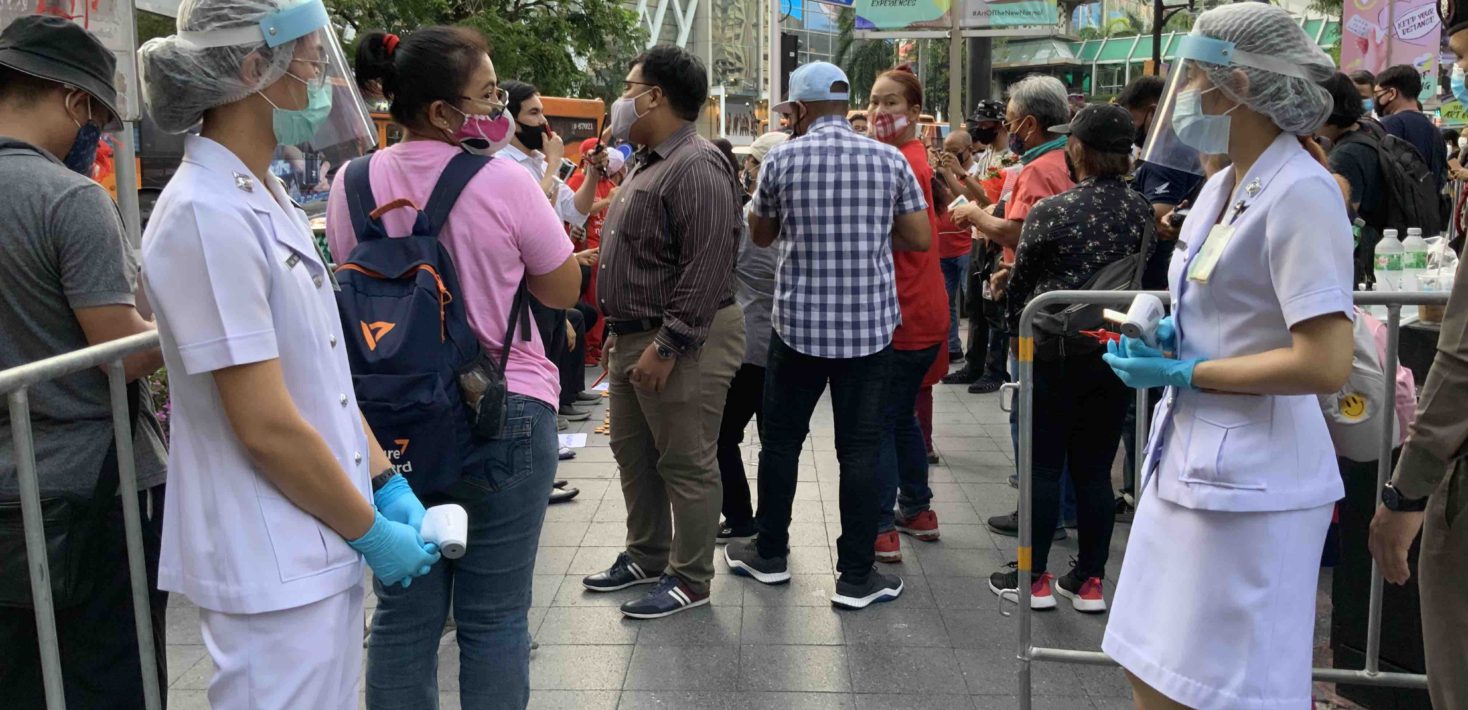As Thai authorities imposed strict virus prevention measures in Bangkok and nine provinces from Monday, Amnesty International calls on authorities to use these restrictions solely to address worsening rates of Covid-19 infection and not to arbitrarily or disproportionately penalise individuals for peacefully exercising their rights.
On July 9, Thai authorities issued new restrictions to slow the spread of Covid-19 as rising rates of infection threaten to severely impact economic, social and cultural rights. The new protocols include curfews, travel restrictions, the closure of malls and limits on social gatherings of five or more persons. People living in affected areas also cannot leave their homes between 9pm and 4am.
“Thai authorities must address COVID-19 through measures that are human rights compliant, using restrictions only as long as they are proportionate, temporary and clearly limited to what is necessary to protect public health,” said Ming Yu Hah, Amnesty International’s Deputy Regional Director for Campaigns.
“The authorities should be focusing on ensuring vaccines are accessible to everyone as soon as possible, regardless of who they are, where they live, and what they can afford, starting with those who need it most.”
“While the right to freedom of peaceful assembly may be restricted as part of necessary efforts to protect public health, individuals facing charges for breaching social distancing measures in order to peacefully assemble must never face prison sentences.”
“Moreover, people should be able to comment freely on social media about the government’s response to the Covid-19 crisis without any fear of facing criminal charges.”
Amnesty International also renews calls on authorities to drop existing criminal proceedings against hundreds of individual peaceful protesters initiated over the last twelve months.
Moreover, as Thailand battles its most significant outbreak of Covid-19 since the pandemic began, Amnesty calls on the Thai authorities to develop and implement an inclusive national allocation plan for vaccine deployment where those most at risk are prioritized, with specific consideration for groups who have faced historical discrimination and heightened risks of COVID-19
They should ensure all people have easy access to credible, reliable, objective and evidence-based information about vaccines and make every effort to ensure the vaccine distribution is implemented effectively and swiftly by strengthening health systems and prioritizing health workers rights and well-being.
Background
Tens of thousands of Thais took to the streets to demand democratic reforms throughout 2020 and into 2021 in Bangkok, the capital, and in provinces across Thailand.
While protests have abated as Thailand battles a renewed increase in Covid-19 infections, the authorities have criminalised and detained peaceful protesters – including under emergency provisions to tackle Covid-19 and despite the country’s prisons having seen thousands of infections in recent weeks.
According to Thai Lawyers for Human Rights, from July 2020 to June 2021, at least 695 individuals have faced criminal charges – including sedition, royal defamation, computer-related crime, violation of the Public Assembly – in 374 lawsuits for joining peaceful protests, 44 of them children. Eighteen individuals have also been charged with contempt of court. One activist received a four-month prison sentence in late March 2021.
According to regulation no. 27, which came into force today under the emergency decree, violators of Thailand’s new Covid-19 prevention measures could face a maximum jail term of two years or a fine of up to 40,000 baht.
This includes anyone sharing reports online that spur public unrest or fear, harm national security, or shed doubt on the state’s response to the coronavirus crisis, even if the information shared is factually accurate and in the national interest.


